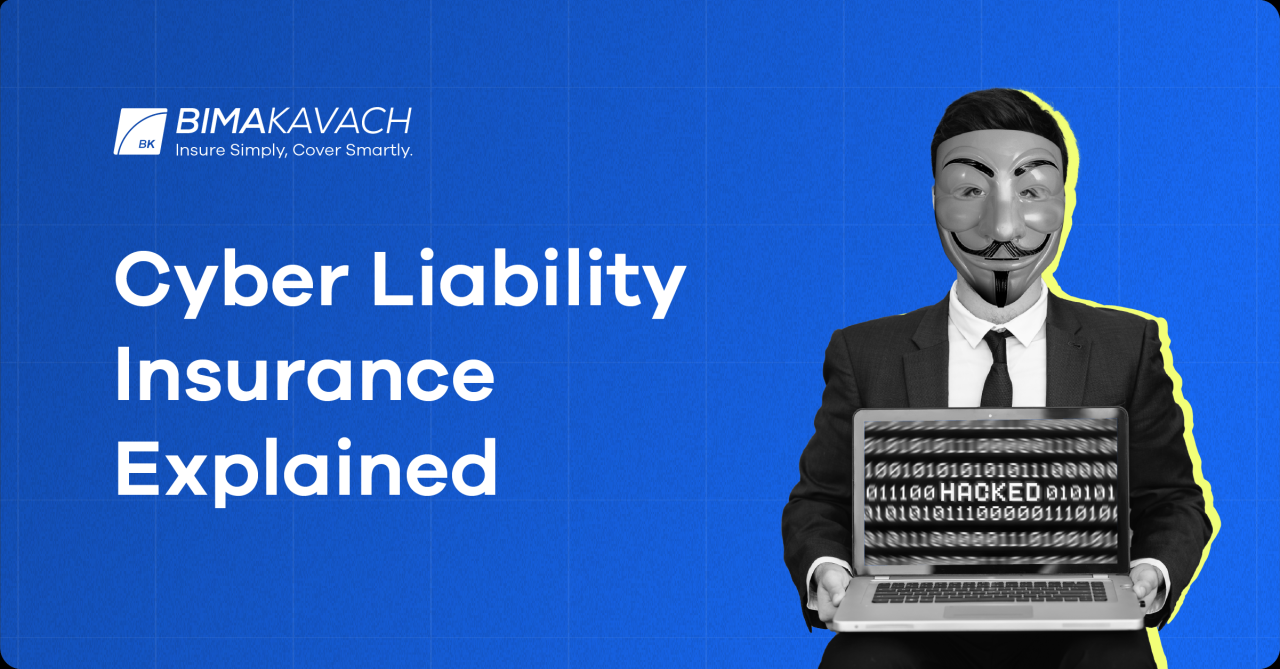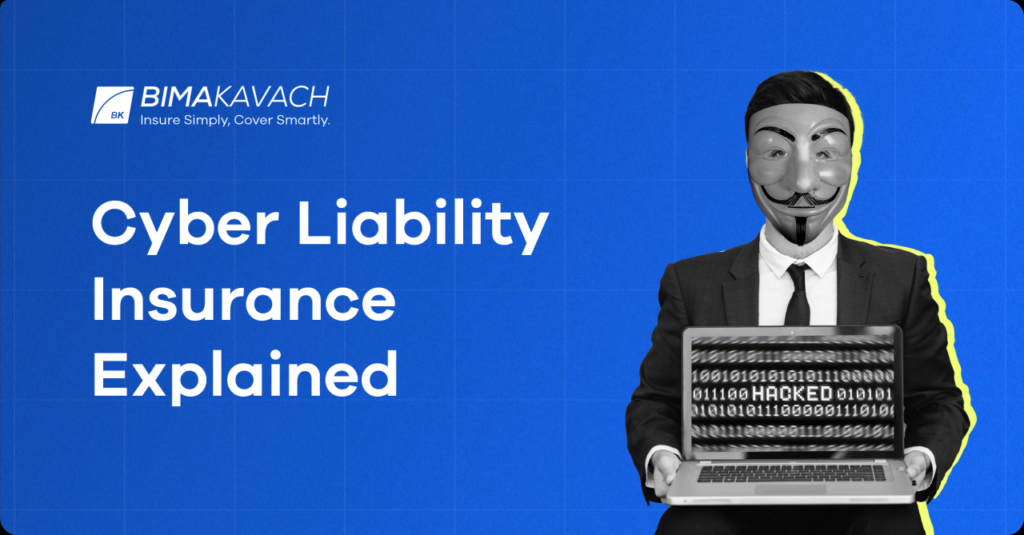Cyber liability insurance is a critical safeguard for businesses in today’s digital world. It provides financial protection against the financial and reputational consequences of cyberattacks and data breaches. From ransomware attacks to phishing scams, cyber threats are evolving rapidly, posing significant risks to businesses of all sizes.
Cyber liability insurance can help businesses mitigate these risks by covering expenses related to data breach response, legal defense, regulatory fines, and business interruption. It also provides essential support in restoring data and systems after a cyber incident, ensuring business continuity and minimizing downtime.
What is Cyber Liability Insurance?
Cyber liability insurance is a specialized type of insurance that protects businesses and individuals from financial losses resulting from cyberattacks, data breaches, and other digital risks. It acts as a safety net, providing financial support and legal assistance in the aftermath of a cyber incident.
Key Coverage Areas
Cyber liability policies typically offer coverage for a wide range of cyber risks, including:
- Data Breach Response Costs: This covers expenses related to notifying affected individuals, credit monitoring services, forensic investigations, legal fees, and public relations efforts to manage the reputational damage.
- Cyber Extortion: This covers ransom payments demanded by cybercriminals who threaten to release sensitive data or disrupt operations.
- Network Security and Privacy Liability: This covers legal defense and settlements arising from lawsuits alleging negligence in data security practices, violations of privacy laws, or unauthorized access to sensitive information.
- Business Interruption: This covers financial losses incurred due to downtime or disruptions caused by cyberattacks, such as lost revenue, extra expenses, and business interruption.
- Cybercrime Coverage: This covers losses arising from various cybercrimes, including phishing scams, malware attacks, and denial-of-service attacks.
- Regulatory Fines and Penalties: This covers fines and penalties imposed by regulatory bodies for data breach violations, such as the General Data Protection Regulation (GDPR) or the California Consumer Privacy Act (CCPA).
Common Cyber Risks
Cyber liability insurance protects against a wide range of cyber risks that can significantly impact businesses and individuals. Here are some examples:
- Data Breaches: This involves unauthorized access to sensitive data, such as customer information, financial records, and intellectual property. Data breaches can lead to financial losses, reputational damage, and legal liabilities.
- Ransomware Attacks: This involves malware that encrypts a victim’s data and demands a ransom payment for decryption. Ransomware attacks can cripple businesses and cause significant financial losses.
- Phishing Scams: This involves deceptive emails or websites designed to trick individuals into revealing sensitive information, such as login credentials or financial details. Phishing scams can lead to identity theft, financial fraud, and reputational damage.
- Denial-of-Service Attacks: This involves overwhelming a website or network with traffic, making it unavailable to legitimate users. Denial-of-service attacks can disrupt business operations, cause financial losses, and damage reputation.
- Social Engineering: This involves manipulating individuals into divulging sensitive information or granting access to systems. Social engineering attacks can lead to data breaches, financial losses, and reputational damage.
Why is Cyber Liability Insurance Important?
The digital landscape is constantly evolving, and with it, the threat of cyberattacks is growing more sophisticated and prevalent. These attacks can target individuals, businesses, and even governments, causing significant financial, legal, and reputational damage. Cyber liability insurance is crucial in mitigating these risks and protecting organizations from the devastating consequences of cyber incidents.
The Growing Threat of Cyberattacks and Data Breaches
Cyberattacks have become increasingly common and sophisticated, driven by the rise of organized crime, nation-state actors, and opportunistic hackers. These attacks can take many forms, including:
- Malware attacks: Malicious software designed to steal data, disrupt operations, or gain unauthorized access to systems.
- Phishing scams: Deceptive emails or messages designed to trick users into revealing sensitive information.
- Ransomware attacks: Cybercriminals encrypt data and demand payment for its decryption.
- Denial-of-service attacks: Overwhelming a target’s servers or networks with traffic, making them unavailable to legitimate users.
Financial Impact of Cyber Incidents
Cyberattacks can result in significant financial losses for businesses, including:
- Data breach costs: Expenses associated with identifying, containing, and mitigating the breach, including legal fees, forensic investigations, credit monitoring, and notification costs.
- Business interruption costs: Lost revenue and productivity due to system downtime, data loss, and operational disruptions.
- Ransomware payments: Paying hackers to decrypt stolen data, which can be costly and encourage future attacks.
- Reputation damage: Loss of customer trust and brand value due to a cyberattack, leading to decreased sales and market share.
Legal and Regulatory Consequences of Data Breaches, Cyber liability insurance
Data breaches can trigger significant legal and regulatory consequences, including:
- Privacy laws: Breaches of sensitive personal data can lead to fines and penalties under privacy laws like the General Data Protection Regulation (GDPR) and the California Consumer Privacy Act (CCPA).
- Class-action lawsuits: Affected individuals may sue businesses for damages resulting from a data breach.
- Regulatory investigations: Data breaches can trigger investigations by regulatory bodies like the Federal Trade Commission (FTC) and the Securities and Exchange Commission (SEC).
Reputational Damage from Cyberattacks
Cyberattacks can severely damage an organization’s reputation, leading to:
- Loss of customer trust: Customers may lose confidence in a business’s ability to protect their data, leading to decreased loyalty and sales.
- Negative media coverage: Data breaches can attract negative media attention, damaging an organization’s public image and brand value.
- Difficulty attracting investors: Investors may be hesitant to invest in a company that has experienced a cyberattack, due to concerns about future risks and reputational damage.
Closing Notes

Cyber liability insurance is a crucial investment for any organization operating in the digital age. By understanding the potential risks and implementing robust cyber risk management strategies, businesses can minimize their exposure to cyber threats and protect their valuable assets. Investing in cyber liability insurance provides peace of mind and financial protection, allowing businesses to focus on their core operations while knowing they are adequately protected from the unforeseen consequences of cyberattacks.
Cyber liability insurance is essential for businesses that rely on technology, protecting them from financial losses due to data breaches and cyberattacks. Just as important is safeguarding your physical assets, such as your camera equipment, with camera insurance.
By protecting both your digital and physical assets, you can minimize the impact of unexpected events and ensure your business’s continued success.

